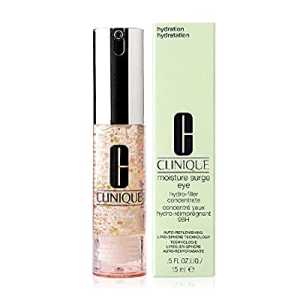
Why Adults Shouldn’t Skip Immunizations

When people think of immunizations, they often picture children receiving their routine vaccines. However, vaccines are just as essential for adults. Immunizations protect against a range of diseases that can cause severe complications, particularly as we age or encounter new environments. Unfortunately, many adults overlook or underestimate the importance of staying up to date on their vaccinations.
In this article, we’ll explore why adults should prioritize immunizations and how they play a critical role in maintaining long-term health and wellness.
1. Immunity Can Fade Over Time
Vaccines given during childhood don’t always provide lifelong protection. Over time, immunity to certain diseases can wane, leaving adults vulnerable. For example:
- Tetanus and diphtheria: Booster shots are required every 10 years to maintain immunity.
- Pertussis (whooping cough): Adults need a Tdap booster, especially if they’re in close contact with infants.
By staying current with recommended vaccines, adults ensure they remain protected throughout their lives.
2. Age Increases Vulnerability to Certain Diseases
As the immune system naturally weakens with age, adults become more susceptible to infections and their complications. Vaccines can reduce these risks, particularly for:
- Shingles: The shingles vaccine is recommended for adults aged 50 and older to prevent this painful condition caused by the reactivation of the chickenpox virus.
- Pneumococcal disease: This vaccine protects against pneumonia, meningitis, and bloodstream infections, especially in adults over 65 or those with chronic health conditions.
3. Protecting Loved Ones
Vaccinations not only protect individuals but also shield those around them from preventable diseases. This is particularly important for:
- Infants: Babies too young to be fully vaccinated rely on adults to prevent the spread of diseases like whooping cough or influenza.
- Elderly family members: Older adults with weakened immune systems are more likely to suffer complications from illnesses.
By staying immunized, adults contribute to a safer environment for their loved ones.
4. Travel Brings New Health Risks
For adults who love to travel, vaccinations are crucial. Certain diseases, such as yellow fever, typhoid, or hepatitis A, may be prevalent in specific regions. Many countries require proof of vaccination as a condition of entry.
Before traveling abroad, consult with a healthcare provider or travel clinic to ensure you’re protected against potential health risks.
5. Vaccines Prevent the Spread of Disease
Adults skipping vaccines can lead to outbreaks of diseases that were previously under control. Diseases like measles and mumps, which were thought to be eradicated in some areas, have re-emerged due to declining vaccination rates.
By staying up to date on immunizations, adults help maintain community immunity, which protects those who cannot be vaccinated, such as people with compromised immune systems.
6. Workplaces and Social Settings Pose Risks
Many adults are exposed to diseases at work or in public settings. Healthcare workers, teachers, and those in crowded work environments are at a higher risk of contracting and spreading infections.
Vaccines like the flu shot and hepatitis B vaccine are often recommended for individuals in high-risk professions to protect both themselves and those they serve.
7. Vaccines Are Safer and More Effective Than Ever
Modern vaccines are developed and tested rigorously to ensure safety and efficacy. Side effects are usually mild, such as soreness at the injection site or a slight fever, and severe reactions are exceedingly rare.
The benefits of vaccines—protection from potentially life-threatening illnesses—far outweigh the minimal risks.
8. Preventing Costly Medical Bills
Treating vaccine-preventable diseases can result in significant medical expenses, lost workdays, and long-term health issues. For example, treating complications from influenza or shingles can be expensive and debilitating. Vaccines are a cost-effective way to prevent these illnesses and their associated burdens.
9. Some Diseases Are Still Common
Even if a disease isn’t prevalent in your immediate area, it doesn’t mean you’re safe from it.
- Influenza circulates every year and can cause severe complications, especially in vulnerable populations.
- HPV (human papillomavirus): While commonly associated with younger individuals, the HPV vaccine is recommended for adults up to age 45 to reduce the risk of certain cancers.
Staying vaccinated ensures you’re protected against diseases that still pose a threat.
10. The COVID-19 Pandemic Highlighted the Importance of Adult Immunizations
The COVID-19 pandemic was a stark reminder that adults need vaccines too. The rapid development and rollout of COVID-19 vaccines helped save millions of lives and reduced the severity of the disease for countless others.
This experience underscored the role of vaccines in preventing the spread of contagious diseases and protecting public health on a global scale.
11. Preventing Antimicrobial Resistance
When adults skip vaccines and contract preventable diseases, they may require antibiotic treatment, which contributes to the growing issue of antimicrobial resistance. By preventing infections through vaccination, we reduce the need for antibiotics and help combat this global health challenge.
12. Immunization Requirements May Change Over Time
New vaccines are regularly developed to address emerging health threats, and recommendations for existing vaccines may change based on new research. Staying informed and consulting with your healthcare provider ensures you’re always up to date.
Which Vaccines Should Adults Consider?
Here’s a list of commonly recommended vaccines for adults:
- Influenza: Annual flu shot to protect against seasonal flu.
- Tdap: Booster every 10 years for tetanus, diphtheria, and pertussis.
- Shingles: For adults aged 50 and older.
- Pneumococcal Vaccine: For adults over 65 or those with certain health conditions.
- COVID-19: Stay current with booster recommendations.
- HPV: For adults up to age 45 if not vaccinated earlier.
- Hepatitis A and B: For those at risk or traveling to areas where these diseases are common.
- Meningococcal Vaccine: For certain at-risk groups or travelers.
How to Stay on Top of Your Vaccinations
- Consult Your Healthcare Provider: Discuss your vaccination history and health status.
- Check Your Records: Ensure you know which vaccines you’ve received and when.
- Stay Informed: Follow updates on vaccine recommendations from trusted sources like the CDC or WHO.
- Use Reminders: Mark your calendar or use apps to track upcoming booster shots.
Concerned about staying protected from diseases in Seawoods? Cura Clinic offers expert Immunization and Vaccination in Seawoods to safeguard your health. If you’re unsure about the right vaccines, our specialists are here to guide you. Don’t hesitate contact us today for personalized care and a healthier future!
Conclusion
Immunizations are not just for children. They are a lifelong investment in your health and the health of your community. By staying up to date with vaccinations, adults can prevent serious illnesses, reduce healthcare costs, and contribute to the fight against disease outbreaks.
Don’t wait until it’s too late—talk to your healthcare provider about the vaccines you need and take a proactive step toward a healthier future.
Author Bio
Article Comments
No Comments!
At present there are zero comments on this article.
Why not be the first to make a comment?
Similar Articles
Search Pages
Upgrade User Account
account to full use of editor,
including hyperlinks
Article Categories
There are zero sub-categories in this parent category.
There are zero sub-categories in this parent category.











